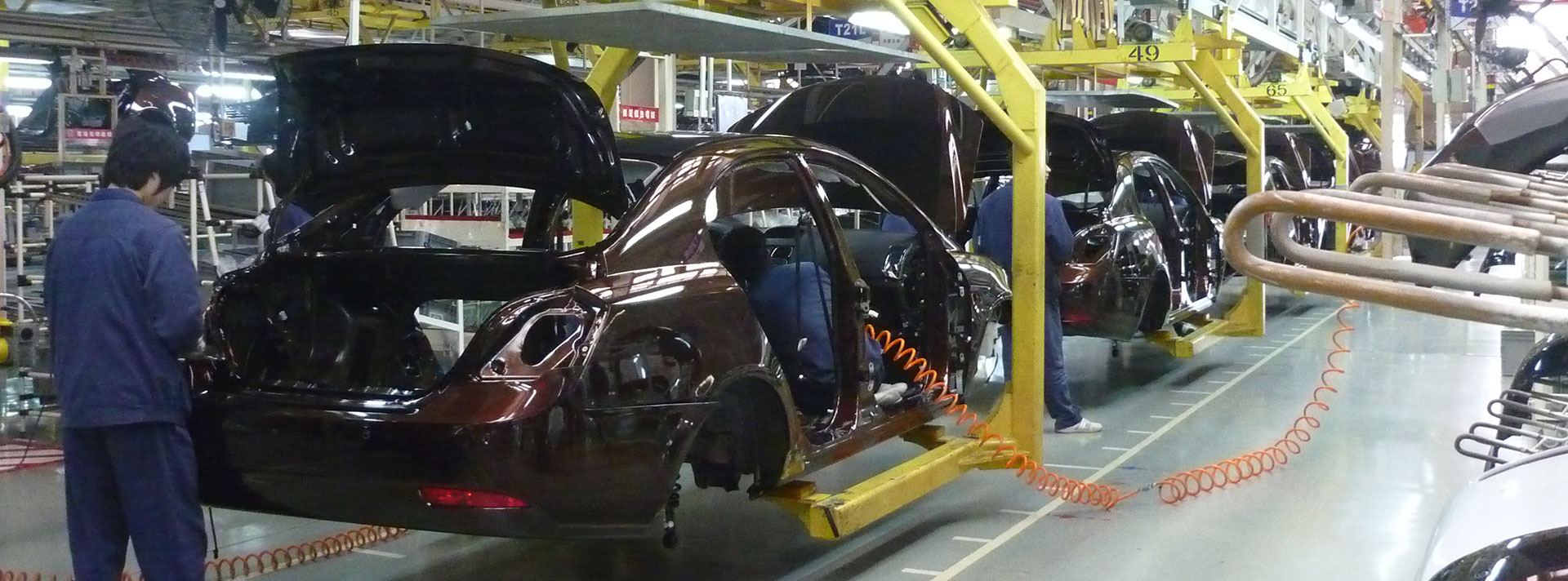




ISO 16949 Automotive Quality Management System is a worldwide accepted quality management system for the automotive industry. The ISO 16949 standard combines previously published standards in Europe and the USA. This standard provides a framework to ensure best practice in the design and production of products in the automotive supply chain.

The Automotive Quality Management System standard was designed by the International Automotive Task Force (IATF). It consists of nine major vehicle manufacturers and national automotive trade organizations from the USA, UK, France, Germany and Italy. Nine major vehicle manufacturers are in alphabetical order: BMW, Chrysler, Daimler, Fiat, Ford, General Motors, Peugeot Citroen PSA, Renault and Volkswagen. It is aimed to bring together the different processes applied in the automotive sector.
The end-designed ISO 16949 Automotive Quality Management System is based on the internationally accepted ISO 9001 Quality Management System standard. It aims to prevent operational errors on its basis and encourages continuous improvement by reducing diversity and waste in the supply chain.
The ISO 16949 standard specifies the quality management system requirements, especially for the automotive industry. It is designed to harmonize different assessment and certification practices throughout the supply chain for the automotive industry worldwide. It was first published in 1999 by the International Standards Organization (ISO), and lastly revised in 2016. The current version is ISO 16949: 2016.
When the ISO 16949 standard is combined with customer-specific requirements, it also specifies the requirements of companies producing automotive production, service and accessory parts. The latest version of this standard has been redesigned based on the 9001 version of the ISO 2015 standard and is fully aligned with the structure and requirements of the Quality Management System.
Today, all businesses producing automobiles and motor vehicles need to obtain ISO 16949 Automotive Quality Management System Certification. ISO 16949 certification is important for these companies to become internationally recognized, enter the market and compete. Obtaining ISO 16949 Certificate has become a necessity in order to gain a place in today's global automotive markets.
Since the quality management system standard is at the core of the ISO 16949 standard, the process approach is mainly encouraged here. In this way, productivity in the enterprise increases, waste is reduced, errors are reduced, quality production is short, costs are reduced and problems in the supply chain are prevented.
With the ISO 16949 Certificate, businesses are able to prove to their customers and to the governmental organizations within the scope of the legal regulations in force that they produce products that meet the product safety requirements. Customer satisfaction is created through the effective implementation of the system. On the other hand, the objectives are clearly defined and new business opportunities are defined.
Perhaps most importantly, businesses identify operational risks, evaluate them and take the necessary measures in a timely manner.
ISO 16949 Automotive Quality Management System is a method that shows how the main companies and suppliers operating in the automotive sector can meet the needs of their customers and other stakeholders. This encourages the idea of continuous development in companies. These companies have to continuously improve their processes in order to determine their targets and achieve them. In particular, the system focuses on the prevention of errors.
The ISO 16949 standard covers specific requirements and basic needs in the automotive industry. Advanced product quality planning requires the identification and implementation of specific processes such as failure and impact analysis, statistical process control, measurement systems analysis and production part approval process. Another key feature is that it promotes the reduction of diversity and waste in the supply chain. This standard also requires the preparation of documented and applicable corporate responsibility policies.
In short, the ISO 16949 Automotive Quality Management System standard provides guidance and offers appropriate methods for businesses that want to ensure that their products always meet customer requirements, that they are of good quality and that customer satisfaction is constantly maintained.
As mentioned above, the ISO 16949 standard is an additional standard. Mainly used in conjunction with other ISO standards. For example, the ISO 9001 standard defines the basic requirements of the quality management system. The ISO 16949 standard specifies the complementary requirements of the quality management system in the automotive sector. The ISO 19011 standard provides guidance in internal and external audits of quality management systems. The ISO 31000 standard outlines the principles and rules of risk management.
ISO 16949 Automotive Quality Management System defines the criteria of automotive based quality management system. It can be used by manufacturers or suppliers of any size, large or small, throughout the automotive supply chain.
Today, more than one thousand 65 companies worldwide are certified according to the ISO 16949 standard. The requirements in the standard are general. This standard can be applied to the design and development of automotive-related products, production, assembly, and installation of any company providing these services. This standard can be applied and documented for all businesses producing automotive parts, service parts or accessory parts that customers require.
ISO 16949 standard requires strong customer focus, top management support, employee motivation and system implementation. It is based on the following seven quality management principles, including process approach and continuous improvement in general:
Being customer oriented
Leading
Ensuring employee participation
To adopt process approach
To provide continuous improvement
Evidence-based decision making
Apply relationship management
First, it is determined whether the organization meets the mandatory requirements of the standard and whether to proceed to the next stage.
It is checked whether necessary procedures and audits have been developed and your institution's readiness for evaluation is reviewed.
The findings that arise in the first two stages are evaluated and after all corrective actions are reviewed, document preparation is started.
To get an appointment, to get more detailed information or to request an evaluation, you can ask us to fill in our form and reach you.